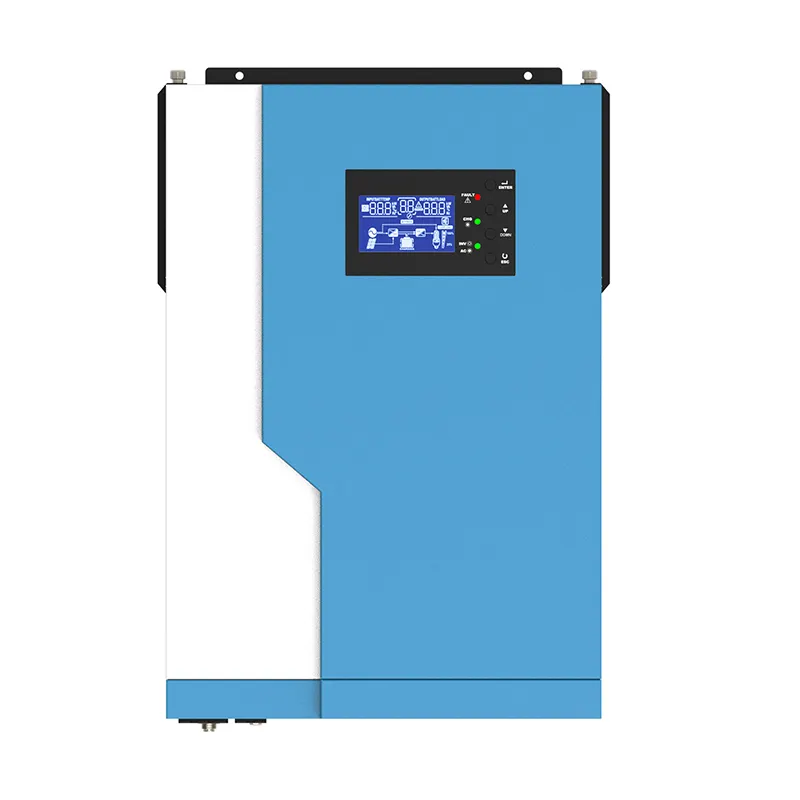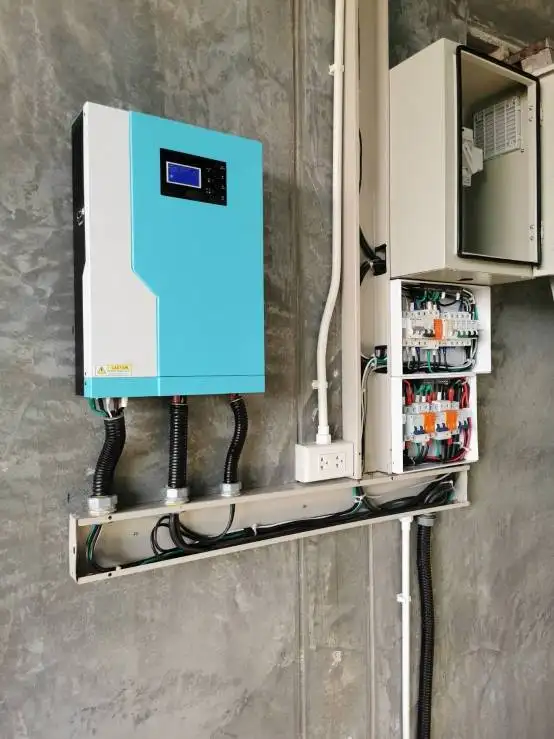The sun offers a powerful energy source. Harnessing it requires the right tools, and an off-grid solar inverter sits at the heart of this. For homes far from the power grid, or those wanting independence from it, this device is a game-changer. It turns the sun’s energy into usable power for our homes. Think of the inverter as a bridge: on one side, you have solar panels collecting sunlight. On the other, your home appliances waiting for power. The inverter joins these two worlds. Understanding its importance helps us make the most of nature’s generous gift: sunlight. Let’s delve into why it’s so crucial.

Why use off grid solar inverter?
Solar energy has rapidly gained traction as a sustainable and eco-friendly power source. Among the essential components of solar setups, the off-grid solar inverter holds a special place. Why, you ask? Let’s dive into the compelling reasons.
Independence from the Grid
An off-grid solar inverter gives you freedom from the traditional power grid. No more worries about power outages or grid failures; your energy source is in your hands.
Remote Location Solutions
For homes or businesses located in remote areas, getting grid connectivity can be challenging. Off-grid inverters bridge this gap, ensuring a steady power supply even in the most isolated spots.
Sustainable Energy Source
Harnessing the sun’s energy is clean and green. Using an off-grid inverter, you reduce your carbon footprint, contributing to a healthier planet.
Cost Savings in the Long Run
While there’s an initial setup cost, over time, generating your own power can lead to significant savings on electricity bills. Plus, with no reliance on the grid, you avoid potential price hikes.
Battery Storage
Paired with batteries, off-grid inverters store excess energy. This stored power becomes invaluable during nighttime, cloudy days, or peak usage times.
Scalable Systems
Starting with a smaller setup? No worries! As your energy needs grow, you can expand your system. Off-grid inverters offer this flexibility, allowing incremental additions.
Reducing Strain on the Grid
By opting for an off-grid system, you indirectly reduce the demand on the main grid. This can lead to lesser grid failures, especially during peak demand times.
Increased Property Value
Having an independent and renewable energy source can boost your property’s value. It’s an attractive feature for potential buyers who prioritize sustainability and autonomy.
Customizable Setup
Every household or business has unique energy needs. Off-grid systems, facilitated by the inverter, can tailor to specific requirements, ensuring optimal energy use.
Safety During Grid Failures
Natural disasters or system malfunctions can disrupt grid power. Off-grid inverters, with their stored energy, guarantee a continuous power flow, ensuring safety and convenience.
Technological Advancements
Modern off-grid solar inverters come with advanced features like remote monitoring and smart energy management. This makes system maintenance easier and more efficient.
Environmentally Friendly
Each kilowatt-hour generated through solar means less reliance on fossil fuels. This shift not only conserves natural resources but also reduces harmful emissions.
What is the best off grid solar inverter?
Choosing the best off-grid solar inverter can feel overwhelming. With numerous brands and features on the market, how do you decide? Let’s guide you through some key considerations.
1. Your Energy Needs Matter
Before diving into brands or models, first assess your energy needs. A household with multiple appliances will have different requirements than a small cabin.
2. Inverter Efficiency is Key
A good inverter efficiently converts DC to AC power. Always check the inverter’s efficiency rating. Higher efficiency means less energy waste.
3. Look for Reliability
Your inverter will work throughout the day. Ensure you choose a brand known for durability and reliability.
4. Sine Wave Inverters
Pure sine wave inverters deliver smooth, high-quality power. They’re ideal for sensitive devices like laptops or TVs. They might be pricier, but the quality is unmatched.
5. Scalability is a Plus
A scalable inverter can accommodate future expansions. If you plan to increase your solar setup, choose an inverter that supports this growth.
6. Warranty and Support
Good brands often provide extended warranties. This not only reflects confidence in their product but also ensures you get support if issues arise.
7. Modern Features
Some inverters come with advanced features like remote monitoring or integrated software. These can be handy for checking system health or managing energy distribution.
8. User Reviews Help
Before making a purchase, read reviews from other users. Real-life experiences offer invaluable insights into performance and reliability.
9. Budget Considerations
While it’s essential to get a quality inverter, it doesn’t mean breaking the bank. There are reliable and efficient inverters available at various price points.
10. Consult Professionals
Solar professionals can provide guidance tailored to your situation. They can recommend inverters based on your energy profile and preferences.
The “best” off-grid solar inverter aligns with your energy needs, budget, and desired features. Remember that this is a long-term investment. So, take your time, do thorough research, and perhaps consult with a solar professional. With the right inverter, your off-grid solar journey will be smooth, efficient, and truly rewarding.

FAQs
What is an off-grid solar inverter?
An off-grid solar inverter converts DC power from solar panels into AC power. This power runs typical household appliances.
Why do I need an off-grid inverter for my solar system?
Solar panels produce DC power. Most home appliances need AC power. An inverter makes the power usable for these appliances.
Can I use a grid-tied inverter for an off-grid system?
No, they serve different purposes. Grid-tied inverters send power to the grid. Off-grid inverters power standalone systems.
How do I choose the right size for my inverter?
Calculate your total power consumption. Ensure the inverter can handle this load. Always consider future power needs too.
Will my off-grid inverter store energy for nighttime use?
No, inverters don’t store energy. For nighttime or cloudy days, you’ll need batteries in your solar system.
